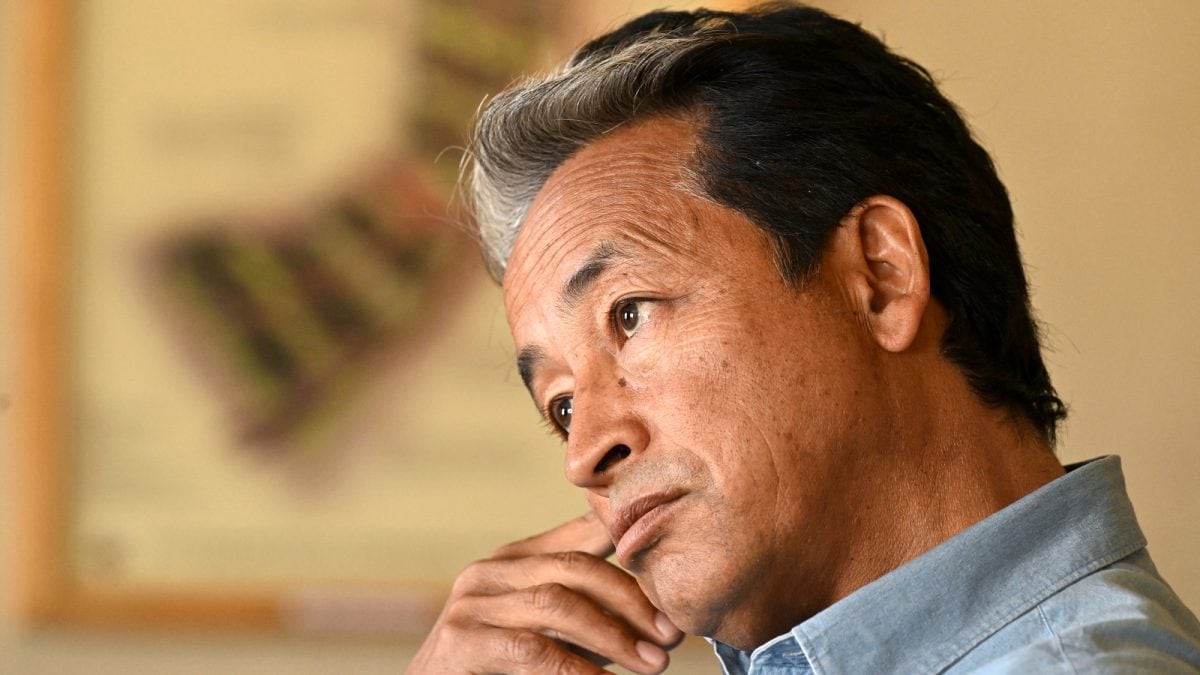Last Updated:
Gitanjali J Angmo’s petition, filed as a habeas corpus writ, calls the detention ‘illegal, arbitrary, and unconstitutional’, violating Wangchuk’s fundamental rights

The Ladakh administration has accused Wangchuk of ‘instigating’ violent protests through ‘provocative speeches’, including suggestions of ‘self-immolation’ and references to the ‘Arab Spring’ to overthrow the government. File pic/AFP
The Supreme Court is set to hear a significant plea on October 6 filed by Gitanjali J Angmo, the wife of noted Ladakh activist Sonam Wangchuk, challenging his detention under the stringent National Security Act (NSA). The case will be heard by a bench of Justices Aravind Kumar and NV Anjaria.
Recommended Stories
Wangchuk was detained on September 26 under Section 3(2) of the NSA by the Deputy Commissioner of Leh, two days after violent protests erupted in the Union Territory, demanding statehood for Ladakh and inclusion under the Constitution’s Sixth Schedule. The violence on September 24 in Leh resulted in four deaths and numerous injuries. Following his detention, Wangchuk was swiftly shifted to the Central Jail in Jodhpur, Rajasthan.
The Ladakh administration has accused Wangchuk of “instigating” the violent protests through “provocative speeches”, including suggestions of “self-immolation” and references to the “Arab Spring” to overthrow the government. They contend his actions were “prejudicial to the security of the State and detrimental to the maintenance of peace and public order”.
Gitanjali J Angmo’s petition, filed as a habeas corpus writ, calls the detention “illegal, arbitrary, and unconstitutional”, violating Wangchuk’s fundamental rights. She argues her husband has always espoused “Gandhian and peaceful methods” to highlight the ecological and democratic concerns of Ladakh. The plea also seeks his immediate release, a medical report, and a directive for authorities to produce him in court.
Furthermore, Angmo has stated that she has not been provided with the formal grounds of detention or allowed to speak with her husband, who was recovering from a prolonged fast at the time of his detention.
The use of the NSA, a preventive detention law that allows custody without trial for up to 12 months, has sparked a national debate over the balance between national security and civil liberties, especially in the context of democratic dissent. The Supreme Court’s hearing is expected to scrutinise the legal validity and “subjective satisfaction” of the authorities in invoking the NSA against the activist.
About the Author
The News Desk is a team of passionate editors and writers who break and analyse the most important events unfolding in India and abroad. From live updates to exclusive reports to in-depth explainers, the Desk d…Read More
The News Desk is a team of passionate editors and writers who break and analyse the most important events unfolding in India and abroad. From live updates to exclusive reports to in-depth explainers, the Desk d… Read More
October 05, 2025, 05:45 IST
Loading comments…
Read More



